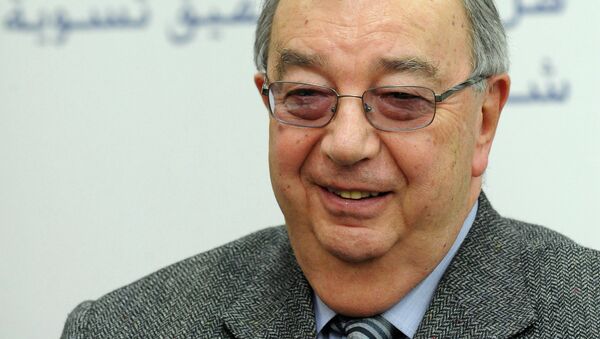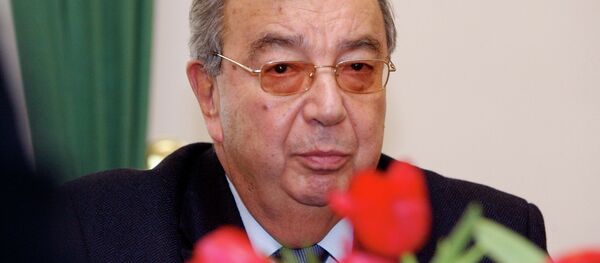"I think that the current state of affairs in these countries is the outcome of the United States’ policies. It is these policies that have led to a situation where the crucial question arises of whether these countries will survive."
Moscow stands by non-military approach to Middle East crisis
Primakov stressed that Russia was interested in finding political means to bring stability to Syria, which has been mired in brutal civil war since 2011.
"Russian interests lay in solving the crisis in Syria as an internal situation that, with the use of political methods, can lead to stability and peace in the country."
Iran to fully engage in fight against ISIL
According to the veteran politician, who was also one of Russia’s best experts on the Middle East, Iran will sooner or later start taking an active part in the struggle to curb the advance of IS militants.
"We can expect that Iran will become one of the active participants in the struggle against the IS."
Islamic State's threat overshadows Middle East sectarian row
Primakov said that the Islamic State, in control of large parts of Syria and Iraq, poses a greater threat to Middle Eastern security than the broader Shiite-Sunni conflict.
"On top of the general confrontation between Sunnis and Shiites that remains, new centers as well as new slogans calling to fight for the establishment of a caliphate on the occupied territories."
Affiliates of the Sunni IS group already operate in North Africa, Yemen, Pakistan and Afghanistan. The group actively recruits militants from around the world through social media.
Primakov, considered to be one of the founding fathers of modern Russian diplomacy, died on Friday after a long illness. He served as the Foreign Intelligence Service chief from 1991 to 1996 and the prime minister of Russia from September 1998 to May 1999.


